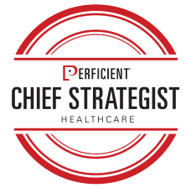In today’s world of omni-channel, multi-variant, personalized, and contextualized patient and member interactions, information and data alone is not the only asset that must be managed in order for healthcare organizations to meet their stated business goals, and consumer engagement and experience objectives.
 Healthcare organizations need context around data to gain the insights and make the decisions needed to successfully execute on their data and insights strategy. Similarly, content and knowledge needs context to ensure an improved patient and member experience across channels.
Healthcare organizations need context around data to gain the insights and make the decisions needed to successfully execute on their data and insights strategy. Similarly, content and knowledge needs context to ensure an improved patient and member experience across channels.
In the case of data, possessing a set of highly accurate patient lab results is of little value to a provider, but having these results in the context of “Is this a ‘normal’ or ‘abnormal’ result?” provides the information the provider needs to drive actionable care. Similarly, knowing if the result is normal or abnormal without knowing the parameters of each is also of little value as the level of action to be taken can be impacted. Without context, data has no value.
With regard to content and knowledge, possessing large amounts of content to support a specific campaign strategy that enables member outreach does little to provide the context required for member or patient-centric responsive communication across disparate channels. Further, given the growing expectation of personalized patient/ member-directed interactions, content needs context in order for it to be coordinated and delivered in a timely manner across channels, with consistent branding, words, and messaging.
Healthcare organizations are beginning to recognize that information, content, and knowledge are different from data when it comes to implementing governance. Whether the governance framework is focused on data or information, or content and knowledge, governance is becoming a new, different, and high priority perspective that focuses providing clinical, operational, financial, experience and engagement outcomes.
Increasingly, healthcare organizations are recognizing governance and positioning it within the broader enterprise context as a business capability. This is helping to change the perception of governance as an “IT problem” (as was the case with data governance), to a business imperative and that requires the support and sponsorship of leadership to maintain the program as an essential part of the enterprise’s operational fabric.
This trend affects not only the placement of the program, but also the skill set and structure of those tasked with carrying out the governance practices. Strategically minded individuals who possess both a business and technical understanding will become essential to the long-term success of the program as they will be able to articulate the desired business outcomes and ensure the governance program’s value is contributing to these outcomes.
This blog was co-authored by Mark Steinbacher and Priyal Patel.
To learn more about the rebirth of governance in healthcare, and exploring the trends and impact on patients and organizational operations, you can download the guide below.

